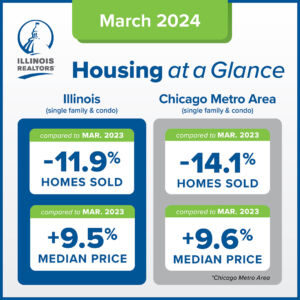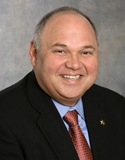What’s the future hold in store for the housing market?
According to Lawrence Yun, chief economist for the National Association of REALTORS®, inflation could increase as much as 6 percent by 2015.
However, 2013 could see a modest 2 percent inflation gain.
Among the reasons for inflation gains: Payroll taxes will increase 2 percent as the result of expiring payroll tax cuts, rents will rise due to a lack of housing stock and median home prices will edge up, too.
The comments came as part of a session focusing on the housing market and the economy held at NAR’s National Conference in Orlando.
Yun said the fiscal policy adopted by the Federal Reserve has allowed the U.S. to print more money without significant inflationary increases due to the dollar’s standing with foreign investors. Eventually there will be increased inflation due to the policy, although Yun does not foresee increases such as those seen in the early 1980s where there were double-digit increases.
Among notable items:
- There will be “meaningfully higher home prices.” Demand for homes is increasing as the economy has strengthened, but the supply of available housing has decreased. Yun forecasts a 15 percent gain in median prices for 2013, although some markets such as Arizona have already seen a 30 percent increase. Buyer interest has increased, but the number of sellers has remained relatively stable.
- Distressed housing is decreasing in many markets. Illinois still faces challenges with the winnowing out of distressed property due to the fact that the properties have to go through the court system. (And yes, Illinois’ challenges with judicial foreclosure backlogs was specifically mentioned.)
- There will be more inequality in wealth distribution in large part due to the large number of renters. “Renters do not accumulate wealth,” Yun said. And the renter population is rising.
One of the more interesting comments came during a Q&A session at the end of the session in Orlando. A questioner asked when the deficit problem became so crushing that things might economically melt down.
Responding to the question was Mark Vitner, a managing director and senior economist for Wells Fargo. He noted that there has been a tendency for policy makers to “kick the can down the road” when it comes to meaningfully addressing spending. Europe, he said, has run out of road to kick the can down.
As for the U.S.?
“There’s about four more years of road left,” he said.




 Create professional development programs that help REALTORS® strengthen their businesses.
Create professional development programs that help REALTORS® strengthen their businesses.
 Protect private property rights and promote the value of REALTORS®.
Protect private property rights and promote the value of REALTORS®.
 Advance ethics enforcement programs that increase REALTOR® professionalism.
Advance ethics enforcement programs that increase REALTOR® professionalism.
 Protect REALTORS® by providing legal guidance and education.
Protect REALTORS® by providing legal guidance and education. Stay current on industry issues with daily news from Illinois REALTORS®, network with other professionals, attend a seminar, and keep up with industry trends through events throughout the year.
Stay current on industry issues with daily news from Illinois REALTORS®, network with other professionals, attend a seminar, and keep up with industry trends through events throughout the year.








